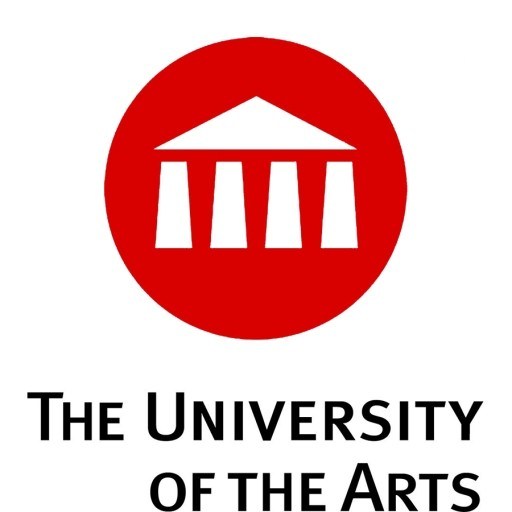Photos of university / #dundeeuni
Product Design at the University of Dundee offers a comprehensive and innovative undergraduate education that combines creative thinking, technical skills, and practical experience. This programme is designed to equip students with the ability to develop innovative products that are functional, aesthetically appealing, and meet the needs of users in a rapidly evolving global market. Throughout the course, students engage in a variety of design projects, from initial concept development to detailed prototyping and manufacturing processes. The curriculum integrates core subjects such as materials, manufacturing processes, ergonomics, sustainability, and user-centered design, ensuring graduates are well-prepared for diverse careers in the product design industry.
Students benefit from state-of-the-art facilities, including dedicated design studios, prototyping labs, and software tools that support digital modelling and visualization. The programme encourages a collaborative learning environment, fostering teamwork and communication skills essential for successful product designers. Industry placements and project collaborations with local and international companies play a vital role, offering real-world experience and networking opportunities. Additionally, the course emphasizes critical thinking, problem-solving, and innovation, encouraging students to challenge conventional approaches and push creative boundaries.
Graduates of the Product Design programme at Dundee often pursue careers in various sectors such as consumer products, industrial design, automotive, medical devices, and furniture. The programme’s strong emphasis on sustainability and responsible design prepares students to contribute meaningfully to creating environmentally conscious products. With a focus on both technical proficiency and creative excellence, the degree offers a pathway into a dynamic and rewarding profession. The University of Dundee’s supportive academic community, combined with practical industry engagement, ensures students are not only academically prepared but also confident in their ability to impact the future of product design.
The Bachelor of Design with Product Design at the University of Dundee offers students a comprehensive exploration of innovative product development, combining creative design skills with practical engineering and manufacturing knowledge. This programme is carefully structured to nurture students’ ability to conceive, develop, and realize functional, aesthetic, and sustainable products that meet societal needs. Throughout the course, students engage with a wide range of design principles, including user-centered design, ergonomics, material selection, manufacturing processes, and digital prototyping. The programme emphasizes a hands-on approach, providing access to cutting-edge workshops and laboratories where students can experiment with different materials and technologies.
Students learn to use advanced computer-aided design (CAD) software and other digital tools essential for modern product design, enabling them to create detailed prototypes and production plans. The curriculum incorporates modules in sustainable design and environmental considerations, preparing students to develop products that are eco-friendly and socially responsible. Design thinking, project management, and entrepreneurial skills are also integral parts of the programme, equipping graduates to lead innovative projects or start their own ventures.
Throughout their studies, students undertake progressively complex projects, often working in teams to simulate real-world design environments. These practical projects are complemented by lectures, seminars, and industry visits, fostering a strong connection between academic theory and industry practices. The programme culminates in a final-year design project, where students showcase their creativity, technical skills, and ability to address real-world challenges.
Graduates of the Product Design programme are well-prepared for careers in various sectors, including consumer electronics, furniture design, transportation, medical devices, and more. They possess the skills needed for roles in product development, industrial design consultancy, manufacturing, and innovation management. The programme also provides a solid foundation for postgraduate study, research, or entrepreneurship, supporting students' professional development and career aspirations.
Programme requirements for the Product Design degree at the University of Dundee typically include a strong academic background in art, design, or related subjects, along with a portfolio demonstrating creative and technical skills. Applicants are usually expected to have completed a relevant qualification such as A-levels, Scottish Highers, or equivalent standards from international curricula, with particular emphasis on subjects like art, design, or technology. Proficiency in English language is required for non-native speakers, generally demonstrated through IELTS or TOEFL scores matching university thresholds. Additionally, applicants may need to submit a personal statement outlining their interest and motivation in product design, along with references from previous educators or industry mentors. Entry into the programme often involves a review process that assesses the applicant’s portfolio, looking for originality, problem-solving ability, and technical competence, as well as academic achievement. For direct entry into certain years of the program, applicants might need specific prerequisites such as coursework in materials, CAD, or conceptual design. Mature applicants without formal qualifications but with relevant work experience can also be considered under special entry schemes. The programme is designed to be accessible to students from diverse educational backgrounds, but a demonstrated passion for design innovation and practical skills is highly valued. Some modules may require students to undertake workshops, collaborative projects, or external placements, necessitating a degree of self-motivation and organizational skills. Applicants should ensure they meet all criteria specified in the university's admissions policies and submit all required documentation by application deadlines. The university also offers guidance and support through its admissions office for international and mature students to help meet entry criteria and prepare for the programme.
The University of Dundee offers a range of financial support options for students enrolled in the Product Design program. Prospective and current students can access numerous funding opportunities to help manage the costs associated with their studies. Tuition fee details vary depending on the student's domicile, with UK students benefiting from the UK government-supported fees and international students contributing higher amounts for their tuition. Scholarships are offered based on academic excellence, talent, and other criteria, with some awards covering full or partial tuition fees. The university also provides bursaries and grants aimed at supporting students facing financial hardship, ensuring that deserving candidates can pursue their education regardless of economic background.
In addition to institutional funding, students are encouraged to explore external funding sources, including government grants, student loans, and private scholarships available in their home countries. The university’s financial aid office offers guidance on application procedures, deadlines, and eligibility requirements to facilitate access to these resources. For international students, there are specific scholarships designed to attract diverse talent from around the world, often requiring applicants to demonstrate academic achievement and potential contribution to the university community.
Part-time work opportunities are also available on and around campus, allowing students to earn supplementary income while balancing academic commitments. The university maintains a career service that assists students in finding relevant part-time employment, internships, and work placements relevant to their field of study, which can also provide valuable industry experience.
For postgraduate students, there are specific funding streams, including research council grants and university-specific studentships, which support more specialized research within Product Design. The university actively promotes awareness of financial planning and management as part of its student support services, aiming to ensure that students can focus on their academic and professional development without undue financial stress. Overall, the University of Dundee’s comprehensive approach to student financing aims to make higher education accessible and affordable for all enrolled in the Product Design program.
The Product Design program at the University of Dundee offers students a comprehensive education in the principles and practices of designing innovative, functional, and user-centered products. The course emphasizes a hands-on, experiential approach, integrating creativity with technical skills to prepare graduates for a dynamic industry. Throughout the program, students engage with a variety of design processes, from ideation and conceptualization to prototyping and manufacturing. The curriculum includes modules such as design thinking, materials and manufacturing, ergonomics, sustainable design, and digital design tools. Students have access to state-of-the-art workshops and laboratories, enabling them to develop physical models and prototypes as part of their learning process.
The program also fosters collaborative work, encouraging students to work in teams on real-world projects, often in partnership with industry stakeholders. This prepares graduates for the collaborative and interdisciplinary nature of modern product design roles. The university's strong links with industry partners, including design consultancies and manufacturing companies, provide students with networking opportunities, placements, and project briefs that reflect current industry challenges. The program aims to develop not only technical competencies but also critical thinking, problem-solving, and effective communication skills.
Students are supported by experienced faculty who are active in research and professional practice, ensuring that teaching is aligned with current trends and technologies. The course encourages innovation and entrepreneurial thinking, enabling students to develop potential business ideas and understand the commercial aspects of product design. Graduation from the program equips students to pursue careers as professional product designers, design consultants, or entrepreneurs in various sectors including consumer electronics, furniture, healthcare, and sustainable products. Additionally, students may choose to continue their studies at postgraduate level or undertake research in specialized fields related to product design.









